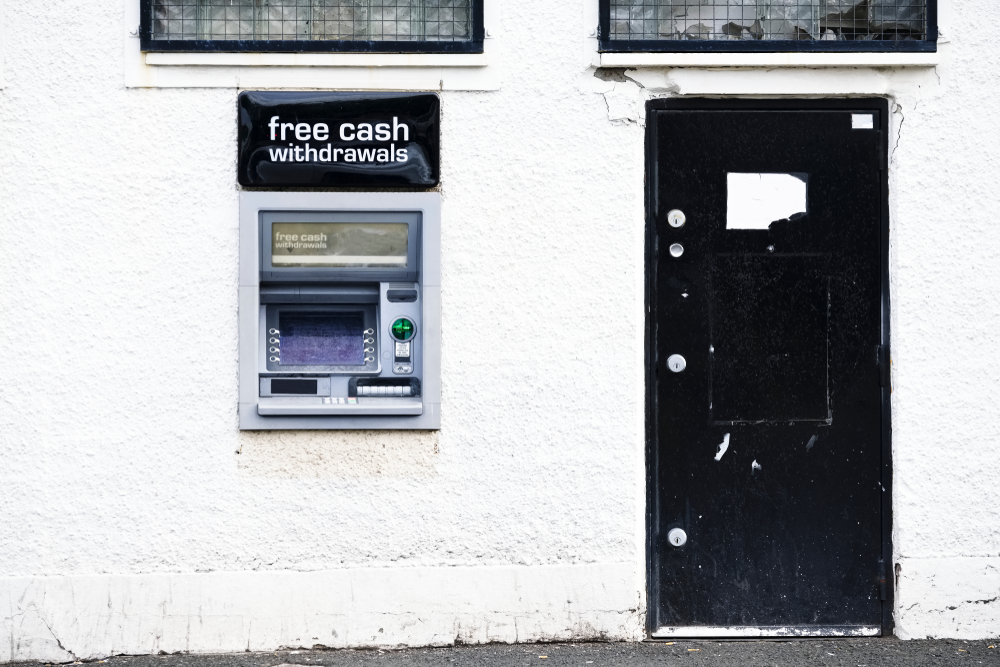Free-to-use cash machines are disappearing from high streets across the UK, with thousands now charging consumers between 50p and £1.99 to withdraw their money.
According to consumer watchdog Which?, the UK will lose 13% of its free ATMs over the next few months with leading operators Cardtronics and NoteMachine both saying that they will likely start charging fees at more machines in the future.
The changes have been prompted by a decision by banks to cut the fees they pay to ATM operators every time a cash point by 20%, paying out 20p rather than 25p as they have done in the past.
The reduction in fees is a result of the UK becoming an increasingly cashless society, with many people preferring the ease of paying by debit card, often contactless, rather than scrabbling around in their wallets to find the right change. According to official figures, cash use has halved over the last decade, with card payments overtaking cash as the dominant form of financial transaction two years ago.
Debit and credit cards may be the dominant form of payments in the UK today, but young people are already starting to move away from cards completely and instead preferring to use their phones for contactless payments via Apple Pay or Google Pay, mobile apps that link to people’s bank accounts.
Digital payments have become even more popular in other countries like China, where Alipay and WeChat Pay have become so ubiquitous that sellers are increasingly refusing to take cash and the Chinese government has been forced to issue a statement reminding people that renminbi cash is legal tender in China and that refusing it is illegal.
Elsewhere, mobile phone-based money transfer services have become the norm, with Africa’s M-Pesa boasting millions of users across Kenya, Tanzania, India, Lesotho, DRC, Ghana, Mozambique, and Egypt for its SMS-based solution that has a knock-on effect of helping raise people out of poverty by giving them access to the financial system.

